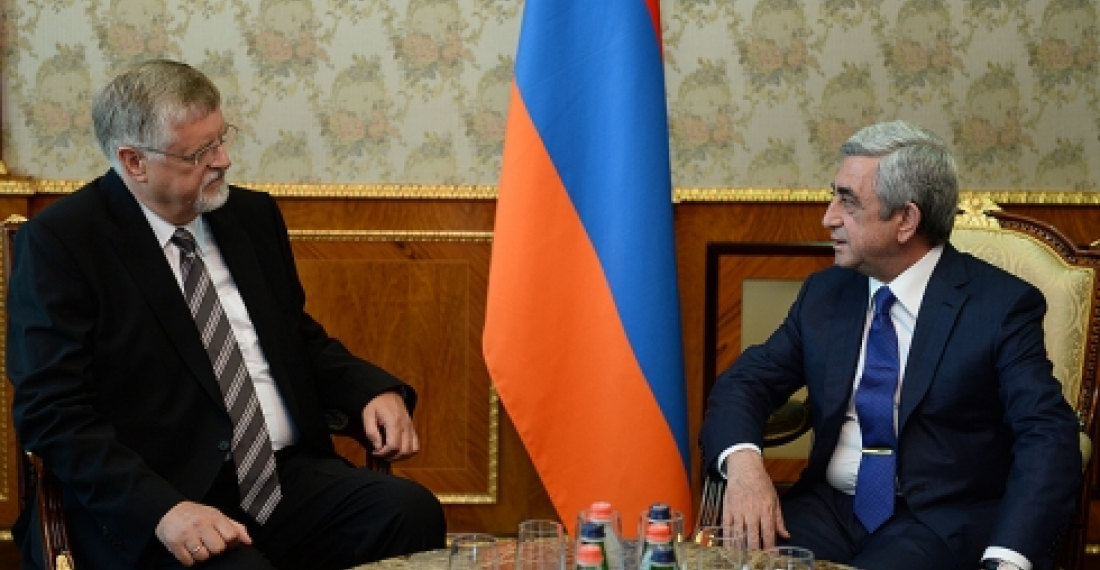The new European Union Special Representative for the South Caucasus, Herbet Salber, on Wednesday met the President of Armenia Serzh Sargsyan in Yerevan during the course of his first visit to the country following his appointment.
During the meeting the President Serzh Sargsyan underscored that Armenia attaches great value to the position of EU Special Representative for the South Caucasus and assured his visitor of Armenia's readiness to promote constructive cooperation.
Herbert Salber stressed that with his appointment the European Union wants to send a message that it is committed to engaging in the settlement of the existing conflicts and promoting cooperation. According to him, it is exactly what his visit to the three countries of the region shortly after the appointment is aimed at. Sabler reiterated the readiness of the European Union to contribute to a peaceful solution of the Nagorno-Karabakh conflict, whilst recognizing the primary role of the OSCE Minsk Group in this endeavor.
The visit of the EUSR to the South Caucasus to the region has coincided with a period of increased tension on the line of contact with both sides admitting that they have suffered fatalities. On Thursday both Armenia and Azerbaijan reported serious breaches of the cease fire. Armenia says that two of its soldiers were killed. Azerbaijan says that one of its soldiers was killed. The Armenian side said that the two soldiers killed were from Nagorno-Karabakh. They also reported that a civilian was injured in a separate incident, near the village of Aygedzor. Azerbaijan said that its soldier was killed by Armenian sniper fire but did not specify the location. Representative of the OSCE are expected to monitor the line of contact during a planned inspection tomorrow.
Source: commonspace.eu with agencies
Photo: EU Special Representative Herbet Salber meeting with Armenian president Serzh Sargsyan in Yerevan on 30 July 2014 (picture courtesy of the press Service of the President of Armenia)







